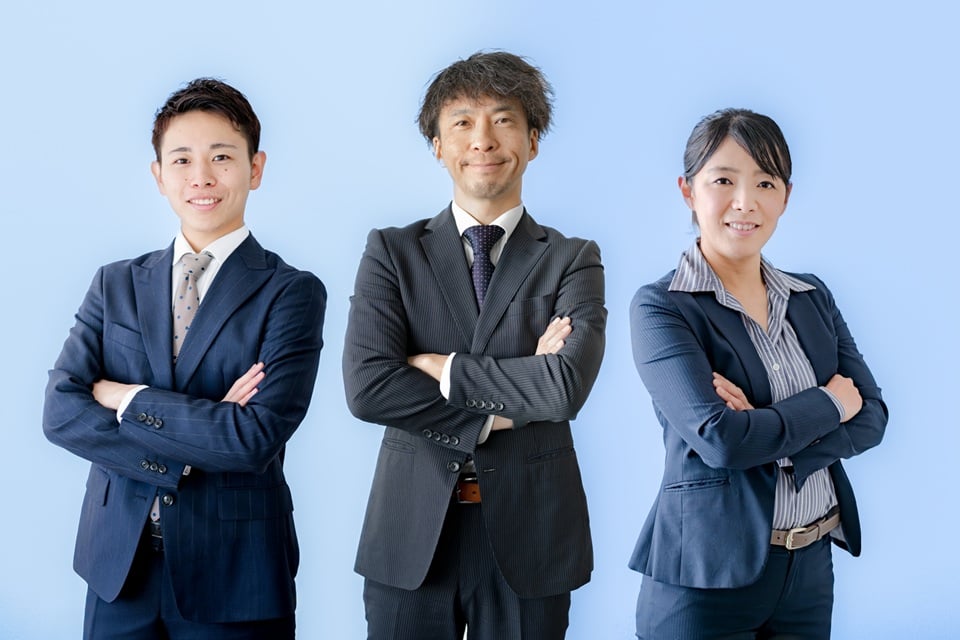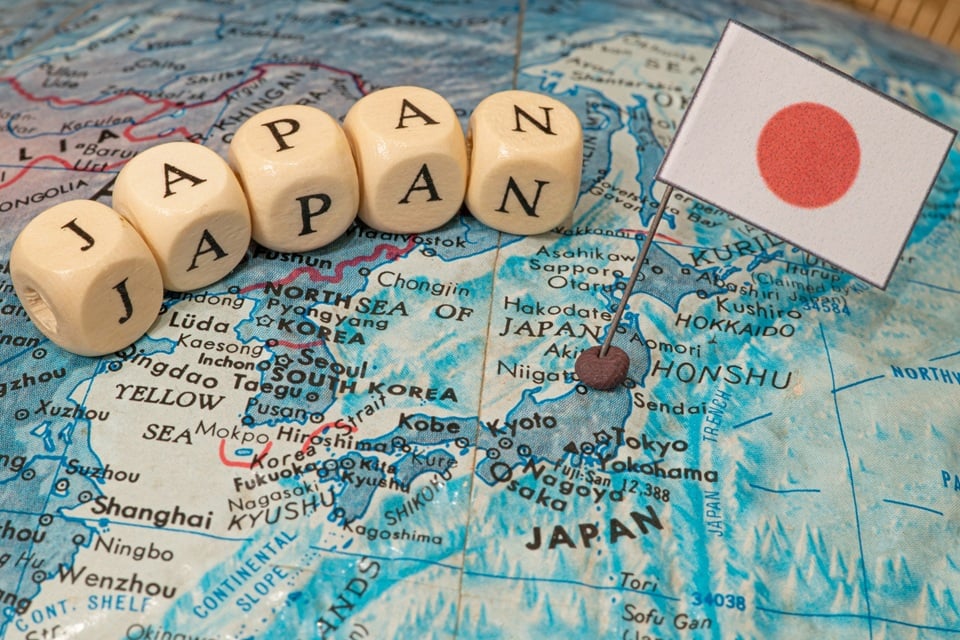
 津田修吾
津田修吾Struggling to adapt to Japan’s unique business culture?
This guide will help you decode the unspoken rules behind Japanese workplaces — from harmony and hierarchy to trust and consensus.
Learn how to communicate effectively, build credibility, and collaborate smoothly in one of the world’s most relationship-driven business environments.
Understanding the Core of Japan’s Business Culture

To truly understand Japanese business, one must go beyond surface-level etiquette and grasp the mindset that shapes every decision and interaction.
The core of Japan’s business culture is built on harmony, teamwork, and respect—values that define how organizations operate and how people build lasting relationships in the workplace.

Harmony, Teamwork, and Respect
At the heart of Japanese business culture lies the concept of Wa—harmony. It represents the belief that maintaining balance within a group is the highest virtue. Rather than pursuing individual success, Japanese professionals strive to preserve stability and unity within their teams.
Harmony encourages calm decision-making and avoids open conflict. Employees aim to align perspectives, ensuring that no one feels excluded or disregarded. Teamwork means more than collaboration; it implies unspoken coordination and mutual awareness, where each member anticipates others’ needs and acts accordingly. Respect is expressed through language, gestures, and punctuality—bowing, polite speech, and careful listening are all ways to show regard for others.
These three values—harmony, teamwork, and respect—form the foundation of Japanese organizations. They cultivate mutual trust, reduce unnecessary conflict, and enable long-term stability. In essence, Japanese workplaces function as collective ecosystems built on shared responsibility rather than competition.
Hierarchy and Consensus in Corporate Culture
Japanese organizations operate within a structured hierarchy built on respect for experience and seniority.
This system is not intended to enforce control but to maintain order, harmony, and mutual understanding across all levels of the organization.
Within this framework, senpai–kohai (senior–junior) relationships play a vital role.
Senior members guide juniors with patience and care, while juniors show respect and loyalty in return. This reciprocal relationship reinforces cooperation and personal growth within teams.
Decision-making in Japan also reflects this hierarchical balance. It relies on two interlinked practices: nemawashi (informal discussions to gain understanding) and ringi (formal written approval).
Through these steps, decisions are reached collectively rather than imposed from the top, ensuring unity before execution.
| Process | Purpose | Outcome |
|---|---|---|
| Nemawashi | Informal discussions before formal meetings | Builds alignment and shared understanding |
| Ringi | Formal document-based approval process | Confirms collective support and direction |
| Senpai–Kohai | Mutual respect between senior and junior members | Promotes learning and cohesive teamwork |
This coexistence of hierarchy and harmony defines Japanese corporate life—each element supporting the other to sustain trust, minimize conflict, and strengthen long-term collaboration.
Communication Style and Indirect Expression
Communication in Japan is deeply contextual and relies on empathy rather than directness.
Disagreement is often softened to preserve harmony, and professionals carefully read between the lines to interpret true intentions. The distinction between honne (true feelings) and tatemae (public stance) illustrates the balance between honesty and diplomacy that defines Japanese workplace interaction.
Effective communication in Japan is less about speaking and more about understanding what is unspoken. Patience, silence, and observation are essential tools for building respect and avoiding confrontation. This subtle approach reflects Japan’s harmony-oriented culture and is fundamental to maintaining trust in business relationships.
Challenges Global Companies Often Face in Understanding Business Culture in Japan

Understanding business culture in Japan is not only about learning etiquette—it is about understanding the mindset that drives teamwork, hierarchy, and decision-making.
For global companies operating in Japan, adapting to this unique corporate culture in Japan can be a decisive factor in long-term success.

Slow Decision-Making and Risk Aversion
Japanese companies value harmony and collective agreement over speed.
This slower process stems from nemawashi—the informal consensus-building practice introduced earlier.
Rather than relying on top-down authority, Japanese organizations build support through layered discussion and mutual understanding.
| Feature | Global Companies | Japanese Companies |
|---|---|---|
| Decision-Making | Top-down and fast | Bottom-up, consensus-based |
| Risk Approach | Encourages challenge | Prefers caution and shared responsibility |
While this pace may appear slow, it fosters teamwork and organizational unity once decisions are finalized. It also reflects the deep cultural respect for inclusion and shared accountability.
Honne and Tatemae — The Gap Between Words and Intentions
In Japan company culture, people often separate true feelings (honne) from socially appropriate responses (tatemae). This helps maintain harmony but can confuse outsiders unfamiliar with indirect communication styles.
Phrases such as “We will consider it” may politely mean “no,” depending on tone and context.
| Common Expression | Hidden Meaning |
|---|---|
| “We will consider it.” | Often a polite rejection |
| “We’ll take it back to the team.” | Decision likely postponed |
Reading between the lines is essential.
International organizations that understand these subtleties can build smoother communication and avoid cultural missteps.
Comparing Japan and Global Business Practices

Globalization has connected diverse corporate systems, but Japan maintains a distinct approach rooted in collective harmony.
Its decision-making style reflects a harmony-oriented culture where consensus and inclusion outweigh speed and individual authority.
Western Speed vs. Japanese Consensus
Decision-making in Japan tends to be slower compared to Western organizations, largely because of its harmony-oriented culture.
Japanese companies prioritize internal alignment and group consensus (nemawashi) before making formal decisions.
This process may take time, but it minimizes conflict and strengthens unity once the decision is made.
| Aspect | Japan | Western Practices |
|---|---|---|
| Decision-Making | Multi-layered consensus building | Quick, top-down authority |
| Key Value | Harmony and inclusion | Speed and autonomy |
| Outcome | Deep trust and fewer mistakes | Agility, but higher risk |
Patience and respect for the process are crucial for professionals collaborating with Japanese teams, as consensus-building is an expression of shared responsibility.
The Value of Process Over Results
In Japanese corporate culture, how something is achieved can matter as much as the final result.
Dedication, sincerity, and gradual improvement are celebrated as signs of integrity.
This emphasis on process stems from Japan’s belief that maintaining harmony and diligence strengthens group cohesion and long-term performance.
Work-Life Balance and Evolving Corporate Norms
Japanese companies are now redefining success beyond long working hours and lifetime employment.
Flexible work styles, diversity, and well-being initiatives are emerging while still maintaining the country’s traditional emphasis on respect and harmony.
Modern Japan seeks to merge efficiency with empathy—balancing global expectations with its unique cultural values.
Building Trust and Effective Relationships in Japan

In Japan, trust is not established by contracts but cultivated through continuous sincerity and respect.
This principle reflects Japan’s harmony-oriented culture, where credibility is demonstrated through consistent actions rather than words.

The Foundation of Trust in Japanese Business
Trust in Japan is deeply cultural. It stems from values such as harmony, respect, and humility that influence all business relationships.
Professionals are expected to show reliability through steady effort, emotional balance, and consideration for others. Punctuality, modest communication, and calm decision-making are seen as signs of maturity and integrity.
In this environment, verbal promises hold less weight than visible consistency.
Trust is built quietly over time through everyday actions—delivering on commitments, maintaining composure in discussions, and showing empathy toward colleagues and partners.
These practices foster mutual confidence and form the invisible foundation supporting long-term cooperation.
| Key Element | Description | Practical Tip |
|---|---|---|
| Consistency | Reliability proven through continuous effort | Keep every promise, even small ones |
| Respect | Humility and polite behavior that earn credibility | Speak calmly and avoid public criticism |
| Follow-Up | Evidence of sincerity beyond meetings | Send thank-you notes or progress updates promptly |
| Personal Connection | Building emotional understanding through informal settings | Engage sincerely during shared meals or events |
How to Build Trust in Practice
While the cultural foundation defines what trust means in Japan, the practical side focuses on how it is earned. Building trust requires patience, empathy, and long-term commitment.
Professionals should prioritize consistent communication, humility, and gratitude. Quick agreements or aggressive negotiations often undermine credibility, while small, steady actions strengthen it.
To gain trust in Japan, focus on reliability rather than persuasion. Listen carefully, understand the unspoken context, and demonstrate commitment through follow-up. Over time, these behaviors communicate respect and integrity more effectively than promises.
Ultimately, trust in Japanese business grows from the harmony between words and actions. It develops gradually yet becomes a lasting bond that supports sustainable collaboration and shared success.
Applying Japan Company Culture in Daily Business

Understanding business culture in Japan goes beyond etiquette—it means applying the nation’s core values of harmony, respect, and organizational trust in everyday work. These principles sustain teamwork, clear communication, and long-term success for both local and international professionals.
Within this framework, daily behaviors such as Hō-Ren-Sō, respect for hierarchy, and polished communication define what it means to be a trusted professional in Japan. Adopting these habits helps bridge cultural differences and promotes smoother collaboration in Japanese workplaces.
The Importance of Hō-Ren-Sō (Reporting, Communication, Consultation)
At the heart of Japanese business lies Hō-Ren-Sō—the trio of Hōkoku (reporting), Renraku (informing), and Sōdan (consulting). These practices ensure transparency, prevent misunderstandings, and reinforce teamwork. They also help build organizational trust by keeping all members aligned and informed.
| Element | Meaning | Key Practice |
|---|---|---|
| Hōkoku | Reporting results and progress | Share updates immediately, even minor ones |
| Renraku | Informing relevant parties | Keep all stakeholders and departments aligned |
| Sōdan | Consulting before taking action | Seek feedback early to ensure shared understanding |
In Japanese corporate culture, proactive communication is not just a courtesy—it is the mechanism through which trust and cooperation are maintained. Practicing Hō-Ren-Sō daily allows international teams to align with Japanese expectations and operate more effectively together.
Leadership and Respect for Hierarchy
In Japan, hierarchy remains an essential framework for maintaining stability and harmony within organizations.
Effective leadership means navigating this structure with humility, awareness, and respect.
Rather than emphasizing authority, successful leaders guide through example and thoughtful communication.
Understanding how to operate within Japan’s structured hierarchy is key to earning credibility and promoting team cohesion.
- Present ideas as proposals, not directives: Encourage participation and consensus through respectful dialogue, including informal discussions such as nemawashi when appropriate.
- Use considerate communication: Adjust tone, timing, and phrasing to show awareness of each member’s position and responsibility.
- Create safe spaces for input: Allow junior colleagues to express opinions while maintaining the dignity of senior voices.
- Lead through consistency: Demonstrate reliability and patience—qualities that earn trust across all levels.
By balancing humility with authority, global professionals can navigate Japan’s hierarchical culture effectively.
Respecting structure while fostering openness builds trust, enhances collaboration, and supports sustainable organizational success.
Professional and Meeting Etiquette in Japan
Professionalism in Japan is defined by respect, humility, and precision.
Every detail—from greetings to body language—communicates reliability. Practicing proper etiquette not only demonstrates awareness of Japanese norms but also strengthens mutual trust and confidence among partners.
| Situation | Expected Behavior |
|---|---|
| Greetings | Bow slightly and use polite expressions such as “Hajimemashite.” |
| Business Card Exchange | Present and receive cards with both hands, ensuring the card faces the recipient. |
| Punctuality | Arrive 5–10 minutes early; lateness can be perceived as disrespectful. |
| Dress Code | Maintain conservative attire; dark suits are standard for both genders. |
During meetings, attentive listening is valued more than assertive speech. Silence often indicates reflection rather than disagreement. Online meetings follow the same standard of courtesy—maintain eye contact, avoid multitasking, and show attentiveness through brief acknowledgments such as “Hai” or “Yes.”
Demonstrating professionalism through precision and empathy reinforces reliability—the essence of trust in Japan’s business environment.
By integrating these practices, professionals can build lasting credibility and contribute to harmonious collaboration.
The Transformation of Corporate Culture in Japan

Japan’s corporate culture is in the midst of profound reform.
While traditional ideals such as lifetime employment and seniority-based promotion once defined success, modern companies are embracing meritocracy, work-style reform, and diversity to adapt to global standards.
This transition reflects Japan’s determination to build workplaces that balance performance and human well-being while remaining true to its values of harmony and respect.
From Seniority Systems to Performance-Based Evaluation
In the past, promotion was determined by age and loyalty. Today, Japan is moving toward results-oriented evaluation, where employees are rewarded for their achievements, innovation, and problem-solving skills.
| Aspect | Seniority-Based System | Performance-Based System |
|---|---|---|
| Evaluation Criteria | Years of service | Individual results & contributions |
| Advantage | Stability, predictability | Motivation, competitiveness |
| Challenge | Limited innovation | Short-term focus risk |
This shift encourages ambition and accountability, helping companies attract global talent while maintaining cooperative teamwork.
Diversity, Inclusion, and Work-Style Reform
The government’s Work Style Reform Act and corporate initiatives are reshaping the Japanese workplace. Companies are now introducing flexible hours, remote work, and inclusive hiring policies to promote equality and balance.
- Gender equality and promotion of women into executive roles
- International recruitment of skilled For international professionals working in Japan
- Reduced overtime and improved work-life balance
- Support systems for parenting and caregiving employees
These efforts reflect Japan’s move toward a more inclusive and sustainable work culture, where diverse perspectives strengthen creativity and resilience.
The Fusion of Japanese and Global Business Cultures
Modern Japan is blending traditional harmony with global efficiency and transparency. Organizations are integrating data-driven decision-making, open communication, and innovation-oriented management while preserving respect, humility, and teamwork.
This cultural fusion symbolizes Japan’s new identity — a society where performance, diversity, and empathy coexist. By combining the best of both worlds, Japan is creating a business model focused on sustainable success through collaboration, inclusion, and continuous growth.
Applying Cultural Understanding for Business Success

To succeed in Japan’s corporate environment, companies must go beyond mere familiarity with manners and seek deep cultural understanding that translates into action.
This means integrating Japanese values such as harmony, respect, and patience into everyday business processes. By doing so, global firms can build stronger relationships, avoid misunderstandings, and achieve sustainable results.
Cross-Cultural and Business Manner Programs
Cross-cultural and business manner programs teach global professionals how to communicate respectfully and effectively in Japanese workplaces. These programs emphasize (rei), (kenkyo), (shinrai), which are essential for maintaining harmony in both formal and informal settings.
| Program Type | Main Focus | Expected Outcome |
|---|---|---|
| Business Manner Training | Honorifics, greetings, dress code | Builds professionalism and trust |
| Communication Workshop | Indirect expressions, active listening | Reduces misunderstandings and enhances collaboration |
| Cultural Awareness Session | Hierarchy, nemawashi, and consensus | Promotes smoother teamwork and integration |
MOTENASU JAPAN, for example, offers executive workshops and omotenashi-based corporate training, combining etiquette with experiential learning—such as traditional tea ceremonies, meeting simulations, and guided discussions on “unspoken communication.”
These sessions enable participants to feel the rhythm and subtlety of Japanese interaction, not just study it.
Practical Programs to Deepen Understanding of Japan’s Business Culture
To move from knowledge to action, organizations should adopt hands-on training that mirrors real Japanese corporate life. Participants engage in activities like:
- Role-playing meetings and negotiations using Japanese protocols
- Observing nemawashi (informal consensus building) in simulated environments
- Practicing Hō-Ren-Sō (report–contact–consult) to maintain clear communication
MOTENASU JAPAN’s training further bridges this cultural gap by combining traditional arts—such as tea ceremony or calligraphy—with modern business case studies.
Through these experiences, participants learn to internalize Japanese sensibilities like perceiving others’ intent and creating balance, essential for effective collaboration.
For those seeking hands-on learning, experiential programs and cross-cultural workshops can accelerate this understanding.Learn more about cultural and business training programs at MOTENASU JAPAN.

・元プロボクサー 柔道有段者 アームレスリング選手
・元飲食店5店舗の代表取締役であり、飲食業界の総合コンサルタント、広告クリエイター
・独自の視点と挑戦を続ける姿勢で、SEOやWebマーケティングに関する記事を執筆しLPのコンバージョン率UP
・海外でのビジネス経験を持ち、国際的な視点からもアプローチ
・現在、山奥で狩猟生活|Web戦略・SEO・LP制作・チャットボット構築支援を行う
・生成AI×プロ編集でSEO記事制作を推進。勝てるキーワードから集客導線を設計。
・構成設計からHTML入稿、効果測定まで伴走。





